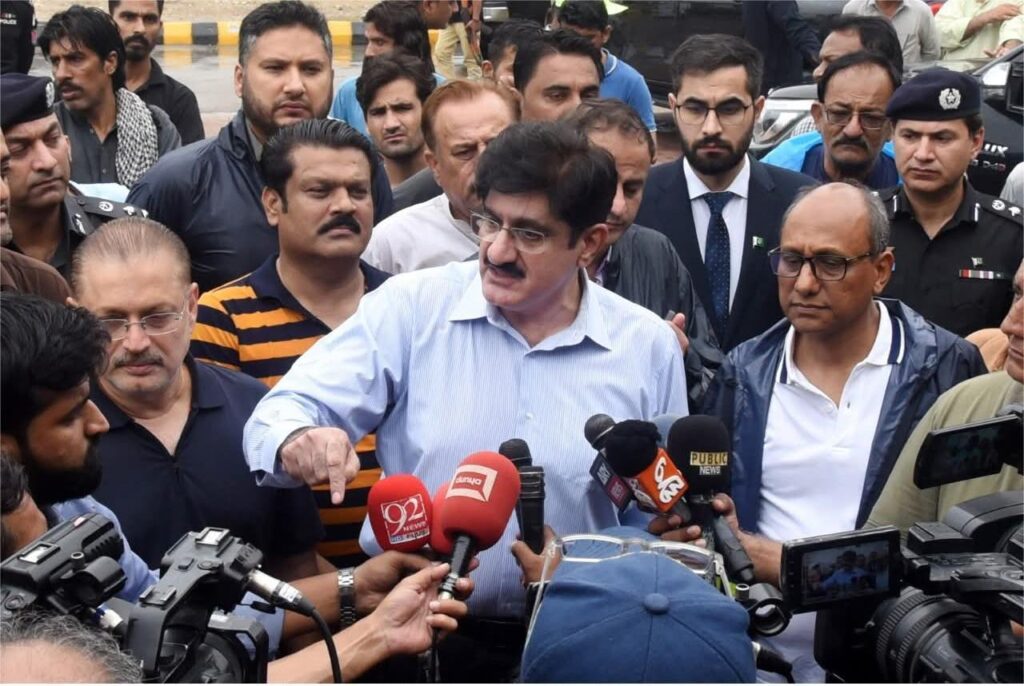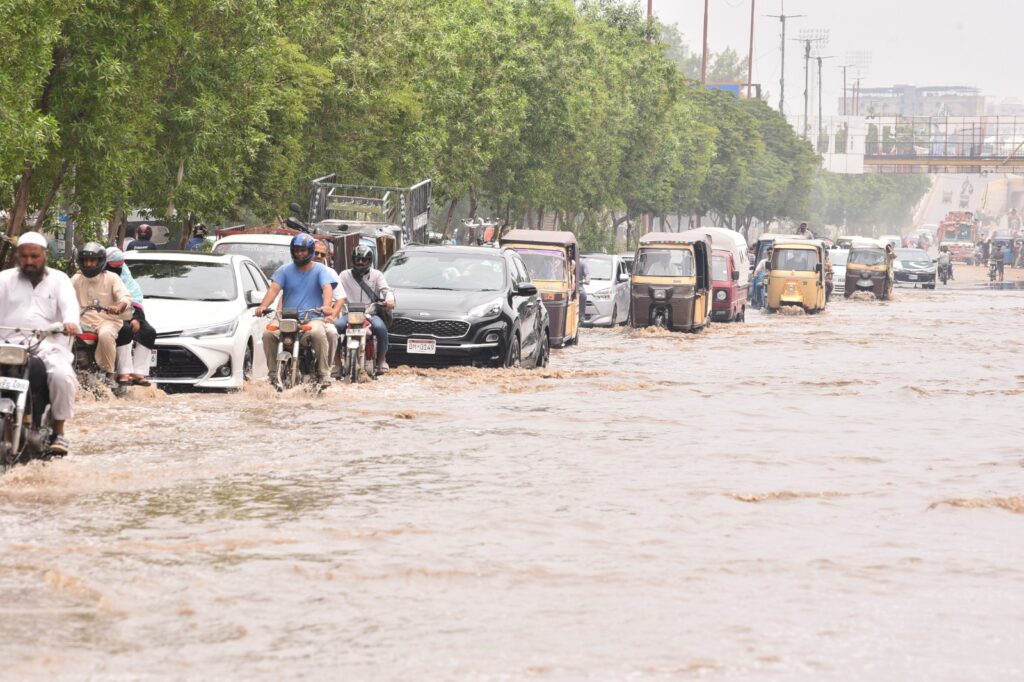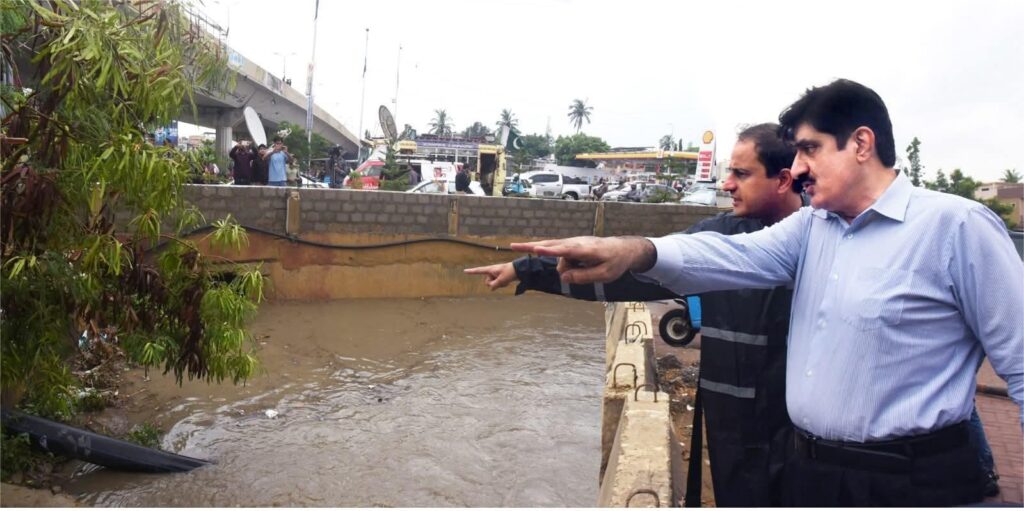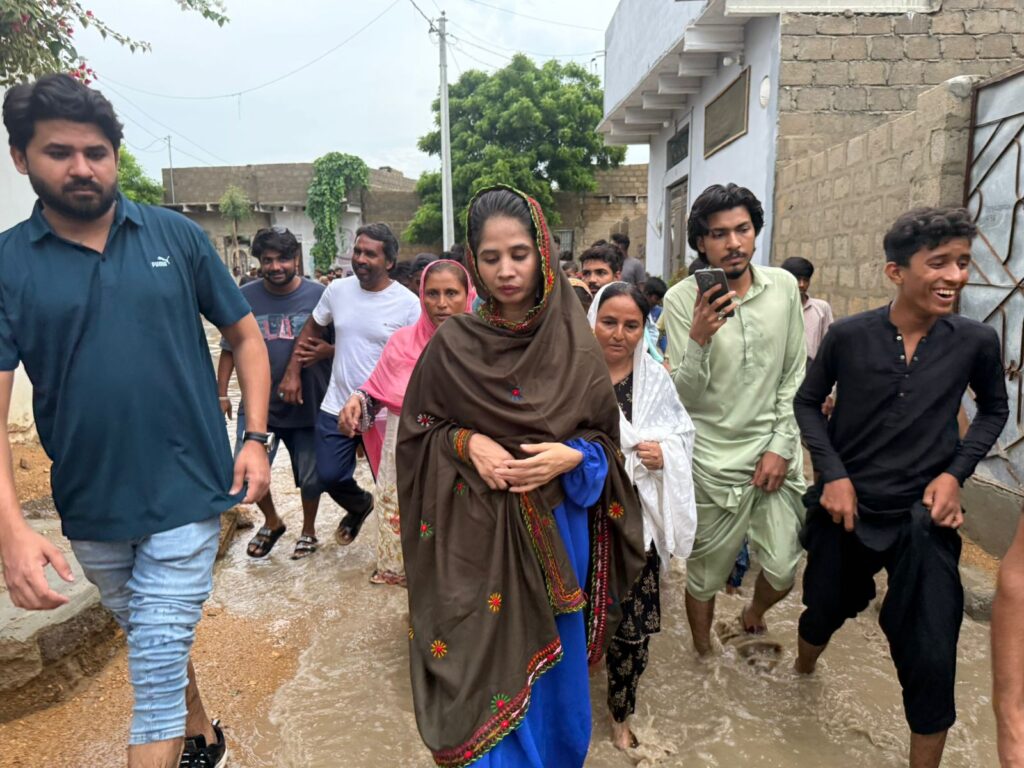Staff Reporter

Karachi: Sindh Chief Minister Syed Murad Ali Shah said on Tuesday that the recent heavy rains in Karachi are part of a global trend of climate change, not a localised event, as the city received up to 200 millimetres of rainfall in 12 hours, causing urban flooding.
Speaking to the media during his emergency visit to Nursery and Shahrah-e-Faisal, the CM highlighted that such extreme downpours have also recently hit Khyber Pakhtunkhwa, Gilgit-Baltistan, China, New York, and Houston, underscoring the global climate crisis.
Karachi’s Rainfall and Urban Flooding
- Karachi recorded 160–170mm rain in just 3 to 4 hours, reaching 185–200mm in 12 hours.
- The CM said flooding was “natural” given the city’s limited drainage capacity compared to Mumbai, which gets nearly 10 times more annual rainfall.
- He stressed the urgent need for modern drainage systems to ensure urban resilience and safety during extreme weather.

Government’s Emergency Response
Murad Ali Shah said the administration successfully cleared most rainwater by late night, contrasting this with the 2020 floods when water stagnated for more than 24 hours. He acknowledged shortcomings but said disciplinary action would be taken against negligent officials.
The CM also criticised some media outlets for airing outdated flood visuals, calling for responsible reporting to help guide citizens during emergencies.
Funds and Infrastructure Development
- The World Bank approved a $1.6 billion package for Karachi in 2020.
- Of this, $100 million has been spent on strengthening the Karachi Water Board.
- Around Rs28–30 billion have been utilised transparently for water infrastructure upgrades.
- The Water Board has been restructured into a Water Corporation with private sector experts for improved performance.
Murad Shah also proposed a Central Road Cutting Authority to regulate road digging, which currently damages city roads due to fragmented permissions by multiple agencies.

Call for Unity and Shared Responsibility
The CM urged political stakeholders, including Jamaat-e-Islami town chairmen, to avoid blame games and work jointly for Karachi’s recovery. He praised Karachi Mayor Murtaza Wahab for making practical efforts instead of merely demanding funds.
He also appealed to citizens to stay indoors during heavy rains to avoid traffic jams and ensure safety.
Emergency Visits and Relief Efforts
Accompanied by ministers Sharjeel Inam Memon and Saeed Ghani, the CM inspected Shahrah-e-Faisal, Frere Hall, and Nursery Nullah, receiving briefings on cleanup operations.
“No laxity will be tolerated in drainage or public relief efforts,” Shah said, instructing all departments to stay on high alert.

Meanwhile, Rooma Mushtaq Matto, Parliamentary Secretary for Minority Affairs, visited low-lying areas to review flooding, power outages, and transport disruptions. She assured citizens that the Sindh Government and Karachi Mayor are fully active in relief operations and that “serving the people is our foremost responsibility.”























